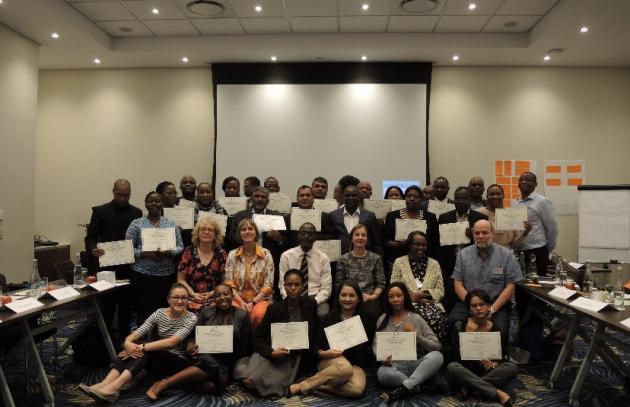Workshop on External Quality Assurance in higher education in Botswana.jpg

Participants from the first blended learning course on External Quality Assurance (EQA) in higher education from six countries of the Southern African Development Community (SADC) recently met for a workshop in Gaborone, Botswana, from 8-11 July. Hosted by the Botswana Qualifications Authority (BQA), the workshop followed a three-month online phase from mid-March to mid-June 2019.
IIEP-UNESCO co-organized the course with the Dialogue on Innovative Higher Education Strategies (DIES) programme of the German Academic Exchange Service (DAAD) and the Southern African Quality Assurance Network (SAQAN). The course trained national teams of QA personnel and representatives from the higher education sector. This year’s national teams hailed from Angola, Botswana, Lesotho, Malawi, Mauritius and South Africa. A second edition of the course will be held in 2020.
The three-day workshop provided an opportunity to discuss in-depth the content from the course’s online phase and group action plans, which participants prepared in advance with a view of implementing change in EQA policies, structures, and procedures. The course has also built on the momentum of the SADC in promoting regional integration across higher education in Southern Africa. This includes a strong higher education agenda to enhance the mobility of students in the region and to foster the recognition of qualifications.
Prior to the workshop, participants joined the Open Conference Sustaining Quality Assurance in Southern African higher education – regional developments and national challenges. The one-day conference brought together some 80 representatives from the higher education sector in Botswana, mainly people in leadership positions, but also QA managers and academic staff.

During the event, Ms. Gudrun Chazotte, DAAD, discussed the Harmonisation of African Higher Education Quality Assurance and Accreditation (HAQAA) Initiative. She noted, “Exchange and dialogue between higher education institutions and agencies is important for enhancing higher education systems.”
The event also hosted a panel discussion on Current Regional QA Developments in Africa and their Implications at National Level, focussing on the African Standards and Guidelines for Quality Assurance (ASG-QA) and the Qualifications Framework of the SADC region, as well as their impact on the national level.

Professor Kuzvinetsa Dzvimbo, the CEO of ZIMCHE, the Zimbabwean higher education council and QA agency, reflected on the need to develop a framework for internal quality assurance (IQA) and EQA in higher education that is grounded in national realities and builds on local knowledge and values.
Ms. Selebo A. Jobe, the acting CEO of the BQA, emphasised the importance of reflecting on quality assurance in relation to the challenges and problems that it is trying to solve.
And Ms. Michaela Martin, Programme Specialist at the IIEP-UNESCO stated that: “We have to think about QA as a way of building and supporting our higher education institutions, which have particular needs and operate in particular contexts. QA approaches therefore need to be context-specific as well.”






